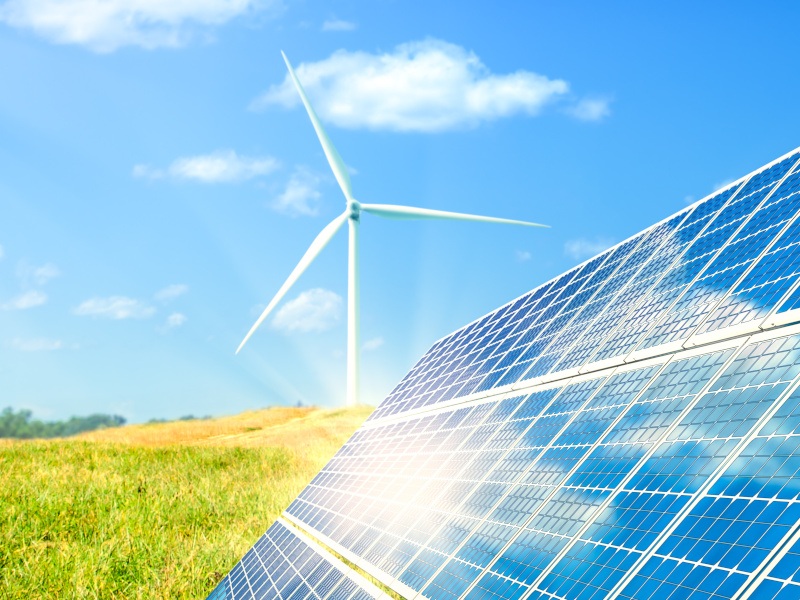
Saving power, heat or water is made possible thanks to alternative sources of energy. By making a few minor adjustments, and perhaps a couple of major ones, it is possible for you to significantly reduce your impact on the environment, and save a lot of money. Here are some places you can start.
Shade your windows from excessive amounts of sunlight to improve the energy efficiency of your home. Both curtains and blinds will help keep the heat from the sun out of your home during the summer months. Since this will make your house cooler, you will use the air conditioner less. You will save energy, as well as money.
Some government money is available to assist consumers with switching to renewable energy. Talk to your local government and figure out what programs are in the area. You may qualify for a free installation or a tax deduction.
Maintain your furnace to save energy. Replace filters annually and clean them once a month. It’s a good call to add filters to warm air registers. This stops debris from blocking heating ducts.
Close the curtains or blinds before you leave the house. You will lower your energy costs since this will help keep your home nice and cool. Generally, the south-facing windows get the most sun because of their position. Install window coverings like heavy curtains, drapes, roman or roller shades, or blinds on all windows.
Research the different energy sources available in your community. Check the cost of running your home using these utilities, taking into consideration any recent legislation regarding energy costs. For instance, it might be worth it to switch to gas heat instead of electric, or switch to well water instead of municipal water.
Solar hot water heaters are an excellent way to have lower costs on your hot water energy use. Check into investing in a water system that is solar-powered. Indirect or direct circulation systems are both available. Indirect systems are the best option for those who have frozen pipes during the winter.
Storm Doors
To help prevent drafts, install storm doors and storm windows. Storm doors and windows stop drafts from letting in so much cold air. You can increase the energy efficiency in your house by up to 45 percent with stormed windows and doors.
One way to save energy is to limit the use of electrical heaters in the winter. Using a fireplace and wearing warm clothing are good, energy-saving alternatives to using electric heaters. You will breathe better during your sleep if the air is cool.
Solar Power
Learn all you can about solar power that is active and passive. Using active power means storing energy for later use, while passive energy is about benefiting from the warmth or light of the sun rays right away. Active solar power needs to have cells, mechanical systems, and solar panels installed. Passive power uses the sun for thermal energy in the home.
A good way to save on your electric bill is to switch to a laptop computer rather than using a desktop. This can cut up to 75% of your electrical use, especially if you are frequently on the Internet or using word processing software. You can also bring your computer anywhere if you have a laptop.
Think about baking with a solar oven. You can make one with easy-to-find items like old windows, boxes, and aluminum foil to reflect light. The temperature in these ovens can heat up to 300 degrees, they can be put together in a few minutes, and the only energy they use is the sun.
Keep a record of your energy efficiency goals. Each month, check your utility bills to check your year-over-year progress with regard to saving energy. When you’re aware of energy expenses, you’re better positioned to reduce them. Your deliberate efforts to reduce your electricity or water consumption will have a significant impact on your ability to form habits out of turning off lights and shutting down appliances.
Use biofuels as a heat source. What these fuels are composed of are wood, oil and vegetable or animal fats. Many times, furnaces that are propane can be changed by a pro so that you can heat using this blend of fuels. Your fuel choices are likely to be between 20 and 99 percent biofuel. Make sure you consult an energy professional before using biofuels in your home.
Use your microwave whenever you can reasonably use it. Heating up your oven will use far more energy than a quick trip through the microwave. So, by microwaving instead, you save a lot of energy.
A great green energy device is the on-demand water heater. Older water heaters are always running and always heating water whether it is needed or not, which is a waste of energy. This type of point of use heater warms the water as it is required, and can result in significant cost savings.
Do not forget to turn off anything you do not use, including lights, appliances and electronics. If everyone did this, a lot of energy and money could be saved. By thinking about the costs involved and how much extra energy you use, should get you to shut off those appliances and lights when not in use.
A simple way to begin incorporating energy-efficient changes to your home is to get help from your electric company. A lot of utility companies, on their websites, provide tools to assist you in seeing what energy you use, in some cases down to an hour; they also offer ways to reduce costs and consumption. Be sure to also check out any programs they have to help you purchase energy-efficient appliances and light bulbs.
Use the ideas laid out here and apply them to your daily home life. You can reduce your bills and do something positive for the environment. Take small steps and soon you will be entirely relying on green energies!